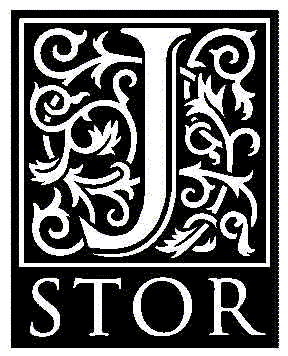
INDONESIA: RESOURCES AND THEIR TECHNOLOGICAL DEVELOPMENT.
Edited by Howard W[ayland] Beers. Lexington: University Press of Kentucky, 1970. 282 pp. $10.50.
Reviewed by CLIFFORD GEERTZ, Princeton University
Following the transfer of sovereignty from the Dutch to the Indonesians at the end of 1950, there was an influx of American scholars concerned with development-economists, educators, physicians, agronomists, demographers, nutritionists, political scientists-into the country, as well as a flow of Indonesian students to the United States for graduate study in such fields. Instructional contracts were made with American universities-with Berkeley for medical education, with Kentucky for agricultural-teams, private and governmental were dispatched and wrote the appropriate reports, plans were drawn, speeches made, programs launched. For several years there was a strong sense of optimism, a feeling that Indonesia was getting ready for the "big push," the jump into "take-off." But as the Sukarno regime grew deafer and noisier and the immediate political and economic situation worsened, the optimism wilted. The scholars looked elsewhere or stayed on trying to do something in an increasingly hostile atmosphere; the returned Ph.Ds disappeared prudently into teaching; the contracts and programs limped along or were finally terminated. Things had gone from the promise of modernity to the promise of catastrophe in a decade.
Then, in 1965, with the failed coup d'etat and the deposition of Sukarno, the whole scene changed again, seemingly back to what it had been in the early fifties. Indonesia got-as the phrase goes-"a second chance." And so did the developmentists, American and Indonesian. Everybody came back to work.
This valuable and instructive, if a bit motley and sometimes uncritical, book is a product of that second-chance climate. The results of a conference held by "The Center for Developmental Change" at the University of Kentucky in 1967, it is informed, as its editor says, by "the new mood" that "under the policies of Sukarno's successor, President Suharto, there is room for hope in Indonesia, even for optimism." Recognizing that "after years of stagnation," the country is reviving, "many Indonesians and foreign friends of Indonesia have begun to 'pick up the pieces,' to inventory the available knowledge and ponder how more of the data for development might quickly be made accessible."
The 13 papers are thus largely surveys, by Americans, Indonesians, or in some cases, American and Indonesian, development specialists in everything from geology and marine resources to nutrition and library services. Virtually all of them are well done, but only a few will be of direct interest to social scientists. Of these, Stephen Douglas' perceptive discussion of Indonesian political culture, which raises some interesting questions about the uneven inculcation of attitudes toward authority and David Penny's and J. Price Gittinger's attempt to define the relations of sociological and economic analysis in forming development policies in agriculture are perhaps the most important. Tojib Hadiwidjaja's description of the agricultural situation generally and Francis Dart's reflections on the problem of science education in developing countries might also be suggestive to sociologists concemed with such topics.
The rest-surveys of mineral resources, nutrition, medical facilities, and so on-though well done, is largely for Indonesia buffs, about whom the book as a whole establishes at least one general proposition: once burned, they are most definitely not twice shy.
Book Review, in: Social Forces, Vol. 49, No. 4 (Jun., 1971), 651-652.
online
sources:
http://search.epnet.com/login.aspx?direct=true&db=sih&an=13581433
(pdf via EBSCO AcademicSearchPremiere)
JSTOR's Terms and Conditions of Use provides, in part, that unless you have obtained prior permission, you may not download an entire issue of a journal or multiple copies of articles, and you may use content in the JSTOR archive only for your personal, non-commercial use.
Social Forces is currently published by University of North Carolina Press. Please contact the publisher regarding any further use of this work. Publisher contact information may be obtained at http://www.jstor.org/journals/uncpress.html.
Each copy of any part of a JSTOR transmission must contain the same copyright notice that appears on the screen or printed page of such transmission.

Using this text is also subject to the general HyperGeertz-Copyright-regulations based on Austrian copyright-law (2001), which - in short - allow a personal, nonprofit & educational (all must apply) use of material stored in data bases, including a restricted redistribution of such material, if this is also for nonprofit purposes and restricted to the scientific community (both must apply), and if full and accurate attribution to the author, original source and date of publication, web location(s) or originating list(s) is given ("fair-use-restriction"). Any other use transgressing this restriction is subject to a direct agreement between a subsequent user and the holder of the original copyright(s) as indicated by the source(s). HyperGeertz@WorldCatalogue cannot be held responsible for any neglection of these regulations and will impose such a responsibility on any unlawful user.
Each copy of any part of a transmission of a HyperGeertz-Text must therefore contain this same copyright notice as it appears on the screen or printed page of such transmission, including any specific copyright notice as indicated above by the original copyright holder and/ or the previous online source(s).